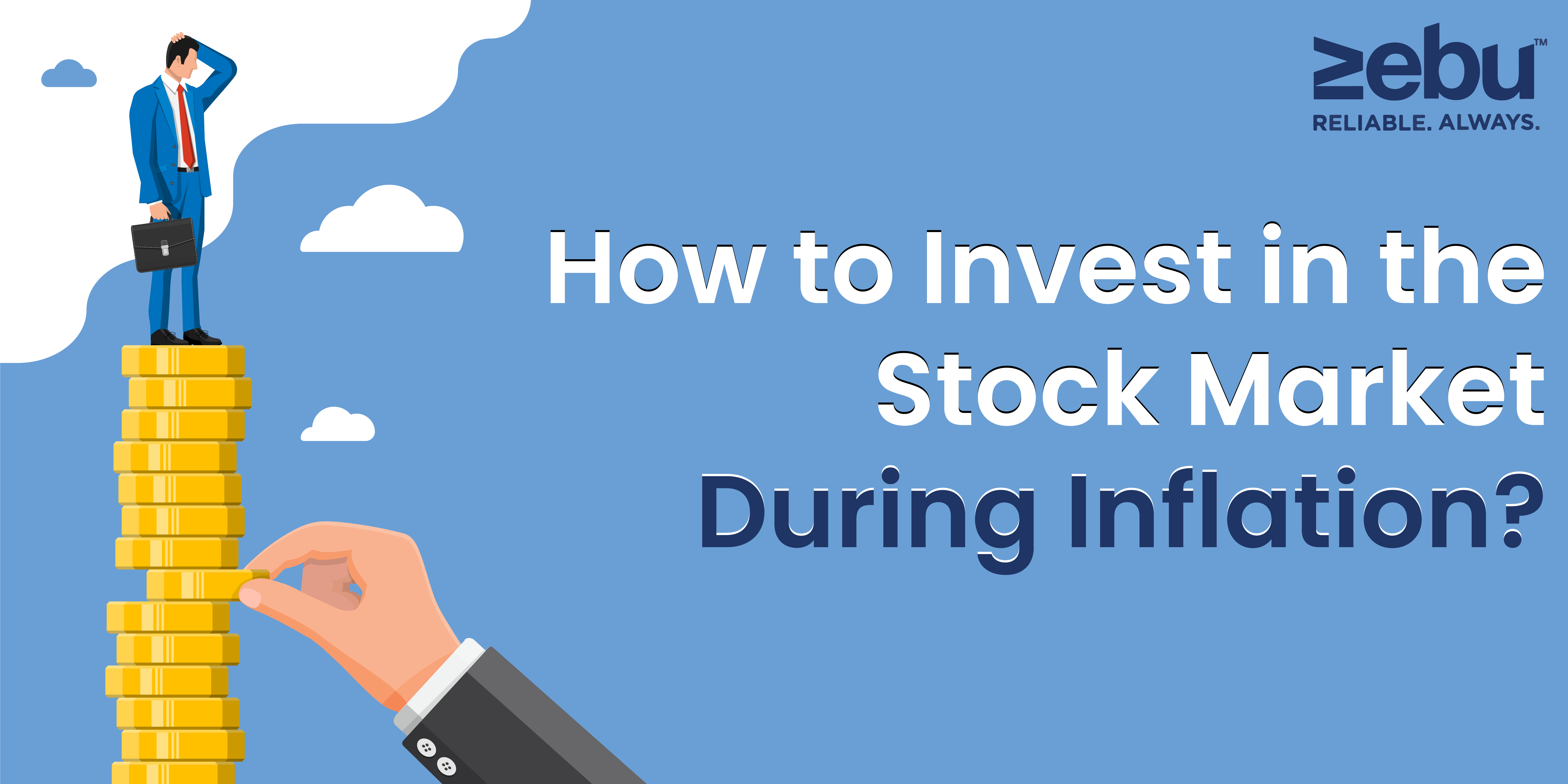
Markets move, but so do minds.
Anyone who’s spent time trading or investing—whether casually or with intent—knows that decisions aren’t always driven by data alone. They’re shaped by something less visible, more personal, and often harder to control: psychology.
This isn’t about being emotional. It’s about being human.
In India’s evolving equity landscape, where participation has widened and mobile apps have made markets more accessible than ever, understanding the psychology behind decision-making is no longer optional. It’s part of the discipline.
At Zebu, we’ve observed a growing interest among investors to not only improve their entries and exits, but to reflect more deeply on how they make those decisions—and what might be influencing them in ways they didn’t notice.
This blog looks at the mental and emotional forces at play when we interact with the markets, especially in the Indian context. Not to offer hacks, but to create clarity.
Emotion Isn’t the Enemy. It’s the Default.
Every trade or investment comes with a quiet internal reaction. A gut feel. An instinct. A flicker of doubt or excitement.
And that’s normal. No one enters a position completely neutral. We’re wired to respond to gain and loss—viscerally.
But emotion becomes a problem when it’s unconscious. When it acts as a driver rather than a passenger.
In Indian markets, we’ve seen this play out repeatedly:
- Panic selling during sharp Nifty corrections, even in fundamentally sound stocks
- Sudden entry into trending sectors after news cycles, often near temporary tops
- Hesitation to re-enter after a small loss, even when the logic remains valid
These aren’t irrational behaviors. They’re psychological defaults that emerge under pressure.
The Most Common Behavioral Traps (And How They Show Up)
You don’t need to study behavioral finance to notice these patterns. You’ve probably felt them. But naming them helps recognize them when they happen.
- Loss Aversion
Losses feel heavier than gains feel rewarding. That’s why investors are more likely to hold a losing stock too long—hoping to avoid booking the loss—even if it no longer fits their strategy.
- Anchoring Bias
This is when you fixate on a specific number—usually your entry price. “I bought it at ₹820. I’ll sell when it crosses ₹850.” Even if the market has changed, that anchor continues to guide your decisions.
- Confirmation Bias
You believe a stock is good, and so you seek only information that supports your view. Negative indicators are dismissed, and overconfidence builds—not on fact, but on filtered inputs.
- Herd Mentality
If everyone’s buying, maybe you should too. It’s a powerful, instinctive urge. We’re social creatures. But in markets, this often leads to late entries into overheated sectors or trendy IPOs.
- Overtrading
When the goal becomes being right now, every price movement feels like a signal. Instead of following a plan, you chase outcomes—and activity replaces strategy.
The Indian Context: Where Behavior Meets Market Structure
Every country’s markets have unique rhythms, shaped by regulation, economic cycles, and cultural attitudes toward money.
In India, several factors make psychological awareness especially important:
- Retail surge: More first-time investors have entered post-2020, many with limited guidance.
- Mobile dominance: Quick access often amplifies reactivity. One alert, one tap, one decision.
- News intensity: Indian markets are closely tied to news flow—macro, monsoon, elections, or global cues.
All this means investors are exposed to constant stimuli. And when everything feels urgent, decisions tend to get faster—and more fragile.
Zebu’s approach has always been to offer tools that de-escalate, not excite. Because thoughtful investing doesn’t thrive in noise.
What Real Investors Often Say (That Reveal Mental Triggers)
We’ve spoken to traders and investors across India who’ve said things like:
- “It was doing fine, but I saw others exiting on Twitter, so I did too.”
- “I wanted to wait, but I couldn’t ignore that 6% drop—it made me uncomfortable.”
- “I doubled down because I didn’t want to be wrong twice.”
- “It hit my target, but I didn’t sell. I thought it had more room.”
Each of these lines tells a story—not about the stock, but about the mind behind it.
No algorithm or technical tool can replace that inner voice. But understanding it can help you respond with more steadiness, less sway.
Psychology Isn’t a Problem to Fix—It’s a Lens to Use
Rather than trying to remove emotion entirely, the goal is to recognize it. To notice when it’s in the driver’s seat. To pause, even briefly, and ask: Is this decision based on what I see—or what I feel?
Zebu’s platform encourages this reflection quietly. We don’t send urgent buzzwords. Our interface doesn’t reward clicks. We offer data, cleanly—so you can bring your own lens to it.
Because calm decision-making doesn’t come from information overload. It comes from clarity of thought, paired with structure.
Building Emotional Awareness into Your Approach
Here are small, structural ways investors begin to engage with their psychology—without turning it into a project:
- Pre-commit to thresholds: Not just price points, but reasons for exiting—profit, loss, or time-based.
- Write down logic before entering a trade. If you’re about to act impulsively, check if the original reason still holds.
- Track your own behavior, not just stock performance. Which trades made you anxious? Which ones felt calm? That tells you more than returns.
- Take breaks from checking—especially during high volatility. Watching each tick doesn’t make you more informed, just more reactive.
These are habits, not hacks. They develop over time, with intention—not pressure.
Final Word
Trading and investing are not just technical activities. They’re emotional journeys. Each decision—buy, hold, exit—is shaped by beliefs, patterns, reactions. Most of them unconscious.
But with observation, that unconscious layer starts to shift. It becomes visible. And once visible, it can be worked with.
At Zebu, we believe trading psychology isn’t something separate from investing. It’s right at the center. The better we understand how we behave around markets, the more clearly we can move through them—on our own terms.
Not every trade will be calm. Not every investment will go as planned. But if your decisions are anchored in awareness—not impulse—you’re already trading with a different kind of edge.
Disclaimer
This article is intended for informational and educational purposes only. It does not constitute investment advice or a recommendation of any kind. Individual investment decisions should be made with consideration of one’s financial goals, risk tolerance, and in consultation with certified advisors. Zebu does not assume responsibility for any investment outcomes based on psychological interpretations or behavioral trends discussed in this article.
FAQs
- What is the psychology of trading?
The psychology of trading is about understanding how your thoughts, emotions, and biases affect your buying and selling decisions in the stock market.
- What is the psychology behind investment decisions?
Trading and psychology are closely linked—investors often make choices based on fear, greed, or herd behavior rather than facts.
- What are common psychological biases in trading?
Biases like overconfidence, loss aversion, and confirmation bias are common in the psychology of trading and can lead to mistakes.
- How do emotions influence investment decisions?
Stock market psychology shows that emotions like fear and excitement can cloud judgment, making investors buy high and sell low.
- What are the emotional biases in trading?
Emotions trading often involves fear, greed, and hope-these can override logic and affect profits if not managed carefully.








